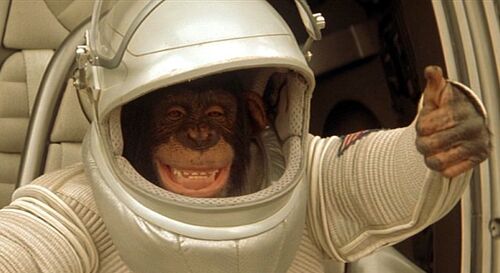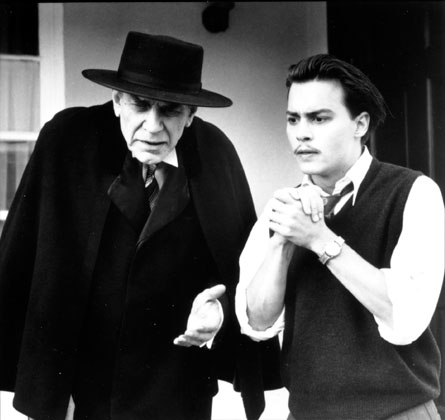Over this course, I learned many things about movie watching
that will help me in the future to better analyze film. First of all, the
concept of mise-en-scene was entirely new to me, and I learned just how
important it is and how much Burton incorporates it into his movies. To be
honest, I had already assumed that the brightest or most clear image in a still
frame of a scene was the focus of the scene, or the dominant, but I was
incredibly interested to learn about how the second things that attracts your eye
is the subsidiary contrast. This really opened my eyes to how much work is put
into the filming of movies. I also
learned that if you learn to look for the dominant and subsidiary contrast’s
while you are watching a movie, you can more easily find the focus of the scene
and the emotion that the director is trying to convey with each scene, which is
important because occasionally, the mood is not what you would assume and you
can even catch forewarning’s of things to come. I also learned that Burton is not
only a movie director, but he also writes pretty creepy poems. I learned much
about Burton’s past, which was also interesting, and this helped explain
Burton’s skewed view of relationships between kids and their parents, and his
view of parents and parenting in general. One thing that I did not learn
throughout this course was the reason for Burton’s incredible obsession with
Johnny Depp and why he loves him so much.
During this course, I also learned that I personally have a tendency to put off my work an incredible amount and I actually worked a lot over this semester to improve this bad habit. I learned that if properly motivated, I have the ability to complete a 1500 word draft of an essay in one night, and not do a half bad job of it either. I learned that Burton directed more than one Batman movie, which was really awesome to learn because I loved how well Michael Keaton acted in the original, and it was incredibly cool to see another movie with him as the star. I learned that while all of Burton’s movies differ in their themes and message, they all have similar themes that relate to Burton himself and more specifically his own childhood. Another cool thing I learned about filming in general was how density of the shots can be used evoke different moods and emotions, and to express different aspects of each scene. Before I learned about density, I assumed the directors changed the angles of the camera and shot from different perspectives to merely keep the audience interested as opposed to actually mean different things about each scene. I also learned about how Burton feels about different groups, for example middle-class suburbia, which he feels has a nasty and gossipy or crowd mentality side to them, and I was struck by how accurate his interpretations were. All in all, I really enjoyed this course and I learned a lot from it, and would recommend it as a first-year seminar to future freshman.
During this course, I also learned that I personally have a tendency to put off my work an incredible amount and I actually worked a lot over this semester to improve this bad habit. I learned that if properly motivated, I have the ability to complete a 1500 word draft of an essay in one night, and not do a half bad job of it either. I learned that Burton directed more than one Batman movie, which was really awesome to learn because I loved how well Michael Keaton acted in the original, and it was incredibly cool to see another movie with him as the star. I learned that while all of Burton’s movies differ in their themes and message, they all have similar themes that relate to Burton himself and more specifically his own childhood. Another cool thing I learned about filming in general was how density of the shots can be used evoke different moods and emotions, and to express different aspects of each scene. Before I learned about density, I assumed the directors changed the angles of the camera and shot from different perspectives to merely keep the audience interested as opposed to actually mean different things about each scene. I also learned about how Burton feels about different groups, for example middle-class suburbia, which he feels has a nasty and gossipy or crowd mentality side to them, and I was struck by how accurate his interpretations were. All in all, I really enjoyed this course and I learned a lot from it, and would recommend it as a first-year seminar to future freshman.




